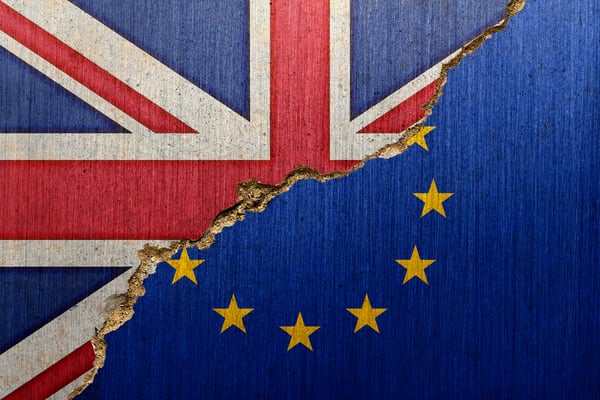What does it mean for traders?
The United Kingdom and the European Union have agreed to an unprecedented 100% tariff liberalization under the EU-UK Trade & Cooperation Agreement (“the EU-UK TCA”).

Below, we share the analysis of the main customs-related terms of the EU-UK TCA:
Rules of origin
The EU-UK TCA establishes zero tariffs or quotas on trade between the UK and the EU for goods that meet the relevant rules of origin. The following products shall be considered as originating in the other Party:
- products wholly obtained in the EU or the UK, e.g., live animals born and raised, plants and vegetable products grown or harvested;
- products produced in the EU or the UK exclusively from originating materials;
- products produced in the EU or the UK incorporating non-originating materials provided they satisfy the requirements of the product-specific rules of origin.
This means there will be no tariffs or quotas on the movement of goods between the UK and the EU when the above indicated restrictive rules of origin apply and the formal requirements to prove goods origin are met.
There are two ways of claiming preferential origin:
- A statement on origin with the originating status made out by the exporter.
The exporter shall obtain from its supplier a declaration or an equivalent document that contains the information describing the non-originating materials concerned in sufficient detail to enable them to be identified. Such declaration may apply to multiple shipments of identical products and is valid for 12 months from the date of issuance or may be prolonged upon the unilateral decision of the EU or UK up to a maximum of 24 months; or
- The importer’s knowledge that a product is originating in the exporting Party.
Such knowledge shall be based on information demonstrating that the product is originating in the exporting Party and satisfies the requirements.
A claim for preferential tariff treatment and the basis for that claim shall be included in the customs import declaration.
Sanitary and phytosanitary measures (SPS)
Traders importing products of animal or plant origin or other related products should meet the SPS requirements. In particular, a trader might be required to hold an authorisation, provide health certificates, and undergo sanitary and phytosanitary controls at border inspection posts.
Authorised Economic Operator schemes recognition (hereinafter “AEO”)
There will be mutual recognition of the Parties’ respective Authorised Economic Operator security and safety schemes which means certain simplified procedures will be available for AEOs, such as fewer controls relating to safety and security, the possibility to waive some obligations subject to certain requirements on traders, etc.
Conclusion
The EU-UK TCA with zero tariff and quotas is an important step forward in the EU-UK future cooperation.
Nevertheless, customs formalities will start to apply from 1 January 2021 when the UK leaves the EU customs union, covering bilateral imports, exports, and goods in transit. Businesses trading between the UK and EU should get ready to comply with border and customs formalities.
C4T provides a wide range of services to support you in complying with an updated EU-UK trade framework, such as customs compliance automation and Managed Customs Services to optimise your customs operations and decrease your workload.
Contact us today to learn more about our services and automated customs solution.
